 W
WThe 10th Regiment was a Danish Army infantry regiment. On 1 September 1961 it was merged with 8. Regiment and from 1 November 1961 the new regiment was known as Dronningens Livregiment. The name Feltherrens Fodregiment was never the official name, as the official name was 10. Regiment.
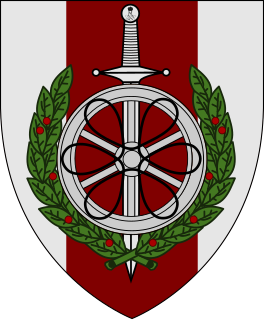 W
WThe Danish International Logistical Center (DANILOG) was established in 2001 as a regimental-level logistics unit that is part of the Danish Army Operational Command. It was based out of Vordingborg Kaserne.
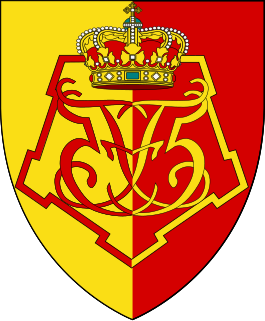 W
WThe Danish Life Regiment was an infantry regiment of the Royal Danish Army. On 1 January 2001 it was merged, together with Sjællandske Livregiment, into Gardehusarregimentet.
 W
WThe Engineer Regiment is a regiment in the Royal Danish Army with base in Skive in Jutland. The soldiers of this regiment are trained in skills such as shooting, blasting, setting up camp, and much more. The engineer troops are also trained to fight alongside infantry regiments in combat zones if needed.
 W
WThe Falster Foot Regiment was a Royal Danish Army infantry regiment. On 1 August 1976 it was amalgamated into the Danish Life Regiment, where four out of five battalions continued to exist until 1981.
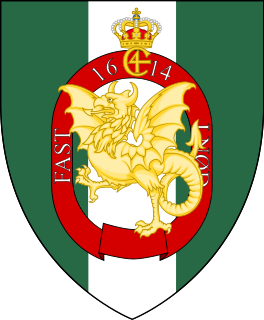 W
WThe Funen Life Regiment was an infantry regiment of the Royal Danish Army. On 1 November 1991 it was merged, together with the King's Jutlandic Regiment of Foot, into Slesvigske Fodregiment.
 W
WThe Guard Hussar Regiment is a cavalry unit of the Royal Danish Army, the primary task is to train the Guard Hussars for various functions in the mobilisation force. The Guard Hussar Regiment is one of two active cavalry regiments of the Danish Army, and was formed in 2001 through the amalgamation of the original Guard Hussars regiment, Zealand Life Regiment and Danish Life Regiment.
 W
WThe Guard Hussar Regiment Mounted Squadron, is part of the Guard Hussar Regiment. The purpose of the squadron is to provide mounted escorts for the Royal family and carry ceremonial services for the Royal Danish Army. The squadron commands 75 horses, 18 officers and NCOs, and 75-100 conscripts. In addition it has a saddler, music-teacher, veterinarian, remount service and a farrier.
 W
WThe Jutland Dragoon Regiment is the only regiment of the Royal Danish Army that has an armored (MBT) battalion, and is one of the Danish combat regiment in which soldiers are entitled to wear the black beret of the Armoured corps.
 W
WThe Jutlandic Air Defence Regiment was a Danish Army Air defence regiment. On 1 November 1974 it was merged into North Jutland Artillery Regiment.
 W
WThe Jutlandic Regiment of Foot was a Royal Danish Army infantry regiment. On 1 November 1961, it was amalgamated with the King's Regiment of Foot, to create the King's Jutlandic Regiment of Foot.
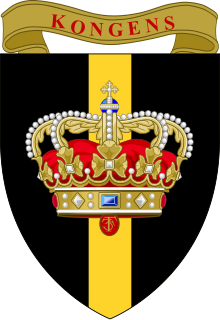 W
WThe King's Jutlandic Regiment of Foot was a Royal Danish Army infantry regiment. On 1 November 1991, it was merged with the Funen Life Regiment, into Schleswig Regiment of Foot.
 W
WThe King's Regiment of Foot was a Royal Danish Army infantry regiment. On 1 November 1961, it was amalgamated with the Jutlandic Regiment of Foot, to create the King's Jutlandic Regiment of Foot.
 W
WThe Logistic Regiment is the military logistics regiment of the Royal Danish Army, responsible for army supply and emergency medical personnel. It is based in Aalborg.
 W
WThe Prince's Life Regiment was a Royal Danish Army infantry regiment. The motto of the regiment was "Gloria Finis".
 W
WThe Queen's Life Regiment was a Royal Danish Army infantry regiment. On 1 January 2001, it was amalgamated with the Prince's Life Regiment.
 W
WThe Royal Horse Guards was a Cuirassier regiment in the Royal Danish Army which was founded on orders from King Frederick III in January 1661 and discontinued on 31 May 1866. It served both as Royal Guards and as a front line cavalry unit.
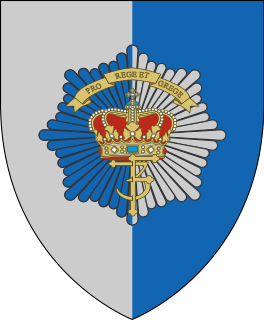 W
WThe Royal Life Guards is a mechanized infantry regiment of the Danish Army, founded in 1658 by King Frederik III. The primary task is to provide a number of soldiers from the Guard Company to serve as a guard/ceremonial unit to the Danish monarchy, while training the Royal Guards for various functions in the mobilisation force. Until its disbandment, the Royal Horse Guards, served the role as the mounted guard/ceremonial unit, afterwards the role was taken over by Guard Hussar Regiment Mounted Squadron. During the time period 1684-1867, the Royal Life Guards were called The Royal Foot Guard, in order to distinguish between the regiment and the Royal Horse Guards.
 W
WThe Schleswig Regiment of Foot is a Royal Danish Army infantry regiment. On 1 January 2001 it was merged, together with the Queen's Life Regiment, into the Prince's Life Regiment. In 2018 it was announced that the regiment would be reestablished on 1 January 2019, as a light infantry battalion.
 W
WThe Command Support Regiment is a regiment of the Royal Danish Army. It was established in 1951 with the purpose of training and equipping units to support the Danish army with wartime Command, Control and Communications. Until 1 January 2019 the unit was known as Signal Regiment Danish: Telegrafregimentet). Today the battalions filled by the regiment set up the command, control and communications infrastructure of the army by setting up a vehicle-based microwave radio relay network in a mesh topology. The network is designed to be secure, encrypted and difficult to neutralize. Besides the radio network, the regiment also establishes mobile military headquarters to be used by the army.
 W
WThe Zealand Air Defence Regiment was a Danish Army Air defence regiment. On 1 September 1970 it was merged into Kronens Artilleriregiment.
 W
WThe Zealand Life Regiment was a Royal Danish Army infantry regiment. On 1 January 2001 it was disbanded and amalgamated into the Guard Hussar Regiment, which was moved from Næstved to Slagelse.